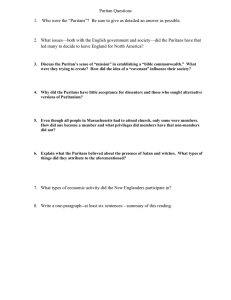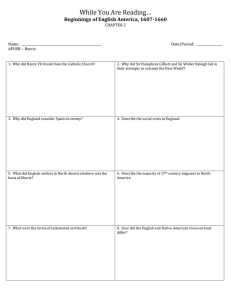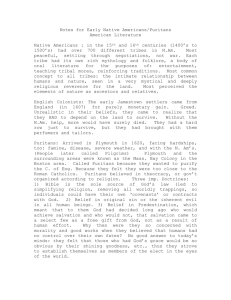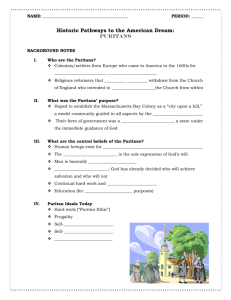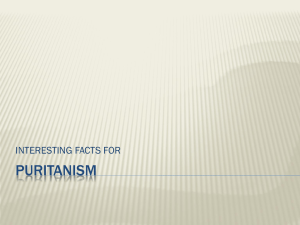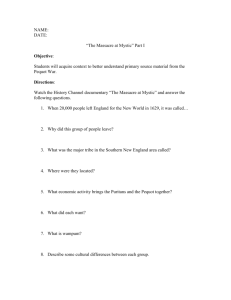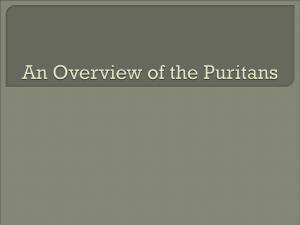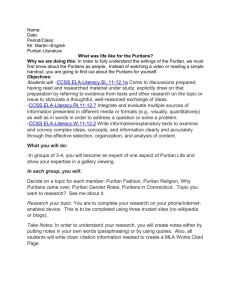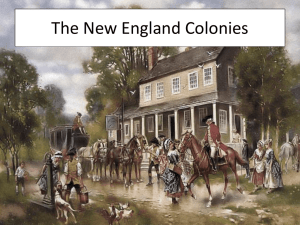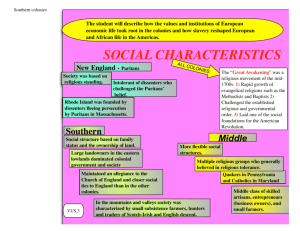Puritans Political
advertisement
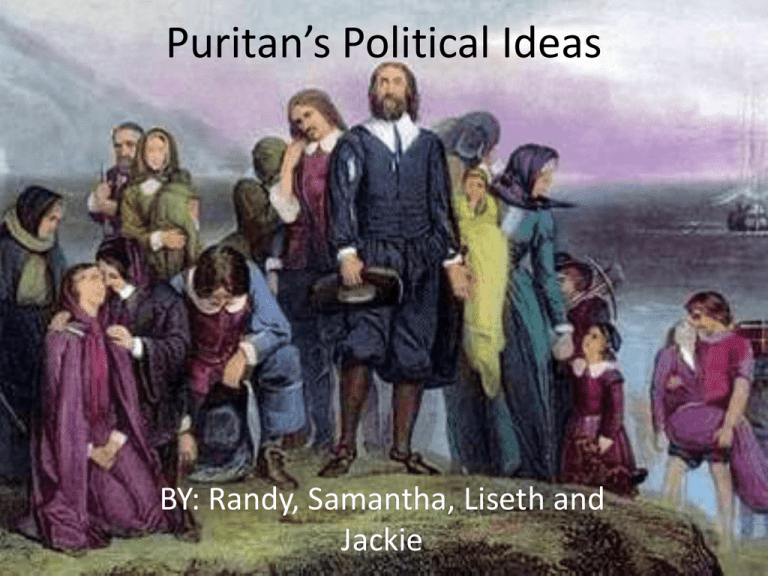
Puritan’s Political Ideas BY: Randy, Samantha, Liseth and Jackie Political Structure of Religion • In New England strictly speaking there was no such thing as “the church.” • Must be a church member to gain political rights, but did not lose them if he is not a member anymore for any reason. • Did exercise admonition over its members by admonition and excommunication. Politics in New England • They favored autonomous congregations of churchgoers over a national, centralized church which is what separated them from the Presbyterians. • Though serial town settlement was ultimately a laboratory for the democratic system that would flourish after the American Revolution, it also possessed conservative tendencies. The Way Of Ruling • Ministers in colonial Massachusetts were forbidden by law from holding office, so that there could be no interference of politics with their spiritual duties. • The law mandated that states enforce religious devotion, and all towns were required to establish a Congregationalist church and support a minister by levying taxes. • Anyone who practiced witchcraft, committed blasphemy, or worshipped a god other than the one acknowledged by the Puritans was subject to death. Puritans Political Way of Life • Wherever a new town emerged it was in fact designed to reproduce the same agrarian system governed by strict rules and adhering to common Puritan values and customs. • This ordering of society, of souls and of the environment, was viewed at the time as a fulfillment of the Puritans' holy mission. • Orderly and civilized expansion was the Puritans' righteous justification for having left England to establish a "city upon a hill" as an upright and pious society that could serve as a model to the rest of the world. Bibliography • http://www.nd.edu/~rbarger/www7/puritans. html • http://books.google.com/books?id=pWiBcosYHIC&lpg=PP1&ots=L37U0nJD8N&dq=politic al%20puritan&pg=PP1#v=onepage&q&f=false • http://www.shmoop.com/new-englandpuritans-pilgrims/politics.html
